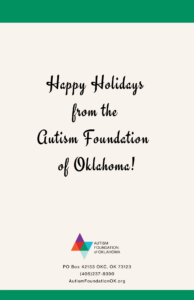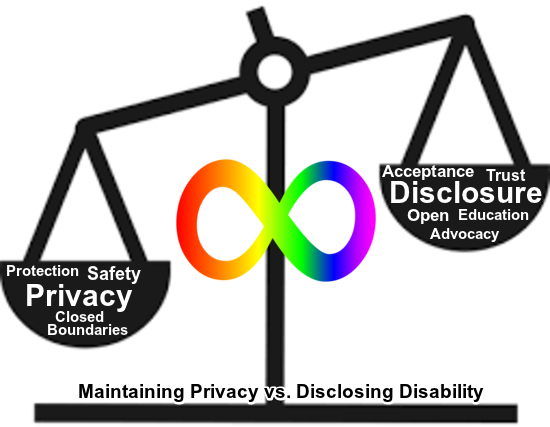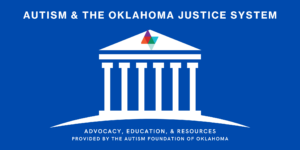
A common employment issue that baffles many Autistic individuals and Neurotypicals alike is what I call the Experience Contradiction. I often see this with companies with unrealistic expectations for entry-level work positions. In other words, the common phrase, “to gain experience, you need experience,” is a puzzling concept because it seems that the only way to garner experience is by being paid or having an official role in an organization. However, there are many ways to gain experience that is not official or paid and still reap the same benefits.
Applicable work experience refers to the skills, ability, and knowledge that closely aligns with the job description (Thottam, 2022). It is important for employers and employees alike to note that experience can be gained by unconventional means such as watching videos, reading books, volunteering, and working at other unrelated jobs. The transferable knowledge you gain from these activities is more valuable than how candidates obtain it. Jobseekers often appear more valuable to employers because they have transferable knowledge and know how to show it. Therefore, gathering knowledge in all the ways you can and learning how to promote your relevant life experiences is critical in a competitive job market.
With this in mind, I would like to point out some of the applicable experiences I have seen and experienced firsthand. I remember being a part of an interview with a college student who did not believe she had relevant experience to apply for a position because her only prior work experience was as a cashier. She did not realize that she had gathered significant transferable knowledge and essential job skills that were still relevant to the position. She didn’t realize that having the same exact job before was not required and that much of her cashier experience would transfer to the new role. Of course, it depends on the position level and how much experience the employer wants, but do not let it deter you if it is within a reasonable range.
Secondly, I recall not feeling confident about having leadership skills that many applications inquire about due to a lack of leadership experience at my previous jobs. However, when an opportunity to start a Professionals in Human Resources Association (PIHRA) chapter at my university arose, I took the initiative to implement the student organization and become its first president. Even though it was a volunteer opportunity, it allowed me to gain important leadership experience. I used my experience to become a Talent Acquisition team lead by acknowledging my previous experience. The key for me was to get creative and seize an opportunity. The leadership experience I sought snowballed from there.
Another aspect of showing your experience is to think outside the box when identifying your relevant job skills. Every job description lists the desired skills needed for a position. Some common skills are problem-solving, critical thinking, decision-making, people management, judgment, and creativity, but you do not necessarily need a job to gain these skills (Thottam, 2022). Once again, notice that you do not need a previous job to begin learning about or implementing these skills because they are the underlying mechanism of performing tasks, not the execution. In other words, you use critical thinking skills to perform tasks, but critical thinking skills alone are not the task. Candidates with direct experience are often favored over those without because they have already shown how they perform previous tasks by utilizing those skills. Therefore, to be competitive with employers that value experience, you must be prepared to announce and explain how your relevant knowledge and skills will help you perform the job’s duties.
It is important not to undermine your non-workplace experience in interviews. Stay optimistic about building your capacities and constantly look for new opportunities. Entry-level positions are designed for this concept yet are often marred by unrealistic experience expectations and poor job analysis. Therefore, focus on learning and finding employers who will cherish your presence and relevant experiences and want to develop them further instead of those only focused on short-term gain. Most importantly, never sell yourself short!
Brandon Orozco is the AFO Workforce Development Project Assistant and holds a BS degree in Psychology with a dual minor in Philosophy and Business Management. Brandon is pursuing an MS in Human Resource Management from Claremont Graduate University and was the founder and President of the Professionals in Human Resources Association (PIHRA) student chapter. Brandon is an Autistic self-advocate and has previous experience being a Talent Acquisition Team Lead for a rising tech startup and enjoys sharing his lived experiences and perspectives.
Sources
Thottam, I. (2022). Should you still apply for a job if you don’t have enough experience? https://www.monster.com/career-advice/article/should-i-still-apply-for-a-job-if-i-dont-have-years-of-experience


 Brandon Orozco is the AFO Workforce Development Project Assistant and holds a BS degree in Psychology with a dual minor in Philosophy and Business Management. Brandon is currently pursuing an MS in Human Resource Management from Claremont Graduate University and was the founder and President of the Professionals in Human Resources Association (PIHRA) student chapter. Brandon is an Autistic self-advocate and has previous experience being a Talent Acquisition Team Lead for a rising tech startup and enjoys sharing his lived experiences and perspectives.
Brandon Orozco is the AFO Workforce Development Project Assistant and holds a BS degree in Psychology with a dual minor in Philosophy and Business Management. Brandon is currently pursuing an MS in Human Resource Management from Claremont Graduate University and was the founder and President of the Professionals in Human Resources Association (PIHRA) student chapter. Brandon is an Autistic self-advocate and has previous experience being a Talent Acquisition Team Lead for a rising tech startup and enjoys sharing his lived experiences and perspectives. 














